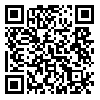Volume 26, Issue 3 (9-2020)
Back to this Issue |
Back to browse issues page
Download citation:
BibTeX | RIS | EndNote | Medlars | ProCite | Reference Manager | RefWorks
Send citation to:



BibTeX | RIS | EndNote | Medlars | ProCite | Reference Manager | RefWorks
Send citation to:
Tayebi Myaneh Z, Rashvand F, Abdolahi F. Relationship between sleep quality and self-management in type II diabetes patients. Journal of Hayat 2020; 26 (3) :238-250
URL: http://hayat.tums.ac.ir/article-1-3624-en.html
URL: http://hayat.tums.ac.ir/article-1-3624-en.html
1- Dept. of Nursing, School of Nursing, Alborz University of Medical Sciences, Alborz, Iran; Student Research Committee, Qazvin University of Medical Sciences, Qazvin, Iran
2- Dept. of Nursing, School of Nursing and Midwifery, Qazvin University of Medical Sciences, Qazvin, Iran; Social Determinants of Health Research Center, Qazvin University of Medical Sciences, Qazvin, Iran
3- Dept. of Nursing, School of Nursing and Midwifery, Qazvin University of Medical Sciences, Qazvin, Iran; Social Determinants of Health Research Center, Qazvin University of Medical Sciences, Qazvin, Iran ,faribaabdollahi93@gmail.com
2- Dept. of Nursing, School of Nursing and Midwifery, Qazvin University of Medical Sciences, Qazvin, Iran; Social Determinants of Health Research Center, Qazvin University of Medical Sciences, Qazvin, Iran
3- Dept. of Nursing, School of Nursing and Midwifery, Qazvin University of Medical Sciences, Qazvin, Iran; Social Determinants of Health Research Center, Qazvin University of Medical Sciences, Qazvin, Iran ,
Abstract: (3448 Views)
Background & Aim: Sleep disturbances in type II diabetes patients due to insulin resistance is a risk factor for the exacerbation of the disease. Therefore, assessment of the factors affecting the improvement of sleep in diabetic patients is a necessity for health care providers. The aim of this study was to investigate the relationship between sleep quality and self-management in type 2 diabetes patients.
Methods & Materials: This is a descriptive, cross-sectional study. A total number of 170 patients with type 2 diabetes referred to the medical centers affiliated to Qazvin University of Medical Sciences were included using the convenience sampling method in 2018-2019. Data were collected by the Richards-Campbell Sleep Questionnaire (RCSQ) and the Diabetes Self-management Questionnaire (DSMQ). Data were analyzed by the SPSS software version 21 using the descriptive/analytical statistics.
Results: The results showed that the mean score of sleep quality was 49.89±25.90 (range: 0-100) and mean score of self-management was 31.82±6.80 (range: 0-48). The results from the Pearson correlation analysis showed a significant relationship between sleep quality and self-management (P<0.05). Also, the stepwise linear regression model showed that the use of health care systems and physical activity and other variables such as marital status and weight of patients had a significant effect on their sleep quality (P<0.05).
Conclusion: The results of the study showed that an increase in the patients’ self-care status, use of health care systems, increased daily physical activity and having an ideal weight can be predictors in improving patients' sleep quality. Therefore, providing infrastructure programs such as continuing education and providing appropriate care programs for diabetics to improve self-management activities, as well as increasing daily physical activity, increasing the use of health systems, and weight control can improve the sleep quality of this group of patients who account for a significant proportion of chronic diseases in communities.
Methods & Materials: This is a descriptive, cross-sectional study. A total number of 170 patients with type 2 diabetes referred to the medical centers affiliated to Qazvin University of Medical Sciences were included using the convenience sampling method in 2018-2019. Data were collected by the Richards-Campbell Sleep Questionnaire (RCSQ) and the Diabetes Self-management Questionnaire (DSMQ). Data were analyzed by the SPSS software version 21 using the descriptive/analytical statistics.
Results: The results showed that the mean score of sleep quality was 49.89±25.90 (range: 0-100) and mean score of self-management was 31.82±6.80 (range: 0-48). The results from the Pearson correlation analysis showed a significant relationship between sleep quality and self-management (P<0.05). Also, the stepwise linear regression model showed that the use of health care systems and physical activity and other variables such as marital status and weight of patients had a significant effect on their sleep quality (P<0.05).
Conclusion: The results of the study showed that an increase in the patients’ self-care status, use of health care systems, increased daily physical activity and having an ideal weight can be predictors in improving patients' sleep quality. Therefore, providing infrastructure programs such as continuing education and providing appropriate care programs for diabetics to improve self-management activities, as well as increasing daily physical activity, increasing the use of health systems, and weight control can improve the sleep quality of this group of patients who account for a significant proportion of chronic diseases in communities.
Send email to the article author
| Rights and permissions | |
 |
This work is licensed under a Creative Commons Attribution-NonCommercial 4.0 International License. |






